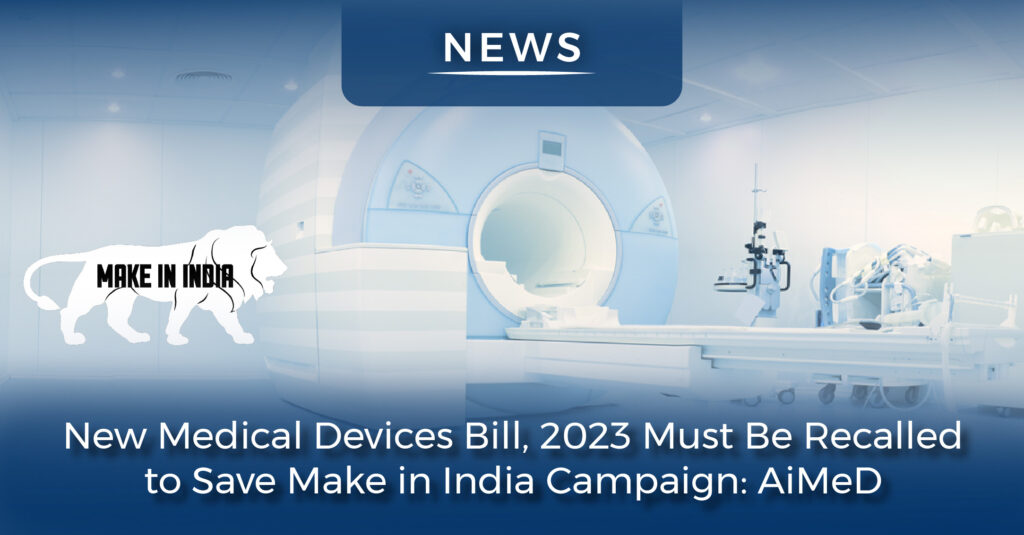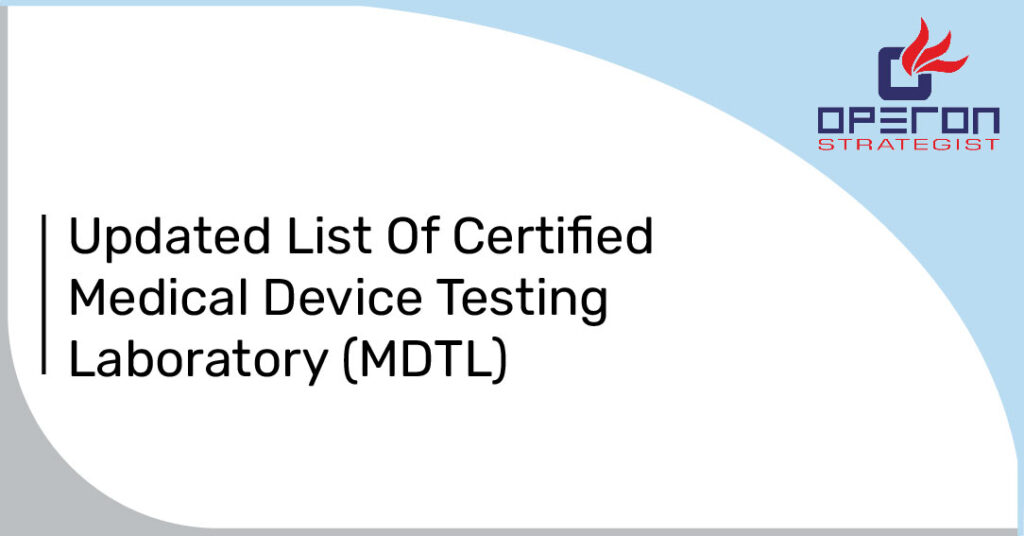The New Medical Devices Bill, 2023, has ignited a storm of controversy within the Indian medical device industry. As the debate intensifies, experts are sounding the alarm about potential pitfalls and ramifications that could jeopardize Prime Minister Narendra Modi’s ambitious ‘Make in India’ campaign.
Criticisms Highlight Bill's Disconnection from Reality
Rajiv Nath, a prominent figure in the industry and Forum Coordinator of the Association of Indian Medical Industry (AiMeD), has emerged as a vocal critic of the bill. He contends that the proposed legislation disregards patient and local player concerns, posing an existential threat to the medical device sector. Nath contends that the bill overwhelmingly favors multinational corporations (MNCs), necessitating an urgent recall for comprehensive revisions.
'Make in India' Initiative at Risk
Nath’s warning is clear: the New Medical Devices Bill, 2023, left unaddressed and unamended, could prove fatal to the ‘Make in India’ initiative. This endeavor, focused on elevating domestic manufacturing, hangs in the balance due to potential repercussions posed by the bill on the medical device landscape.
Looking for Consultant?
Let’s have a word about your project
Spotlight on Indian MedTech Expo (IMTE)-2023
Simultaneously, India is hosting the India MedTech Expo (IMTE)-2023, running parallel to the G-20 Health Ministers meeting. The expo aims to showcase India’s medical device capabilities. Yet, concerns around the bill underscore the urgency of resolving these issues to safeguard the vision of ‘Make in India.’
Urgent Revisions Needed to Tackle Multifaceted Challenges
Nath emphasizes the multifaceted consequences that could arise from adopting the bill. He highlights potential impacts on medical device self-reliance, e-waste management, affordability, quality, job creation, and the broader goal of reducing import dependency. Immediate intervention is crucial to avert derailing the ‘Make in India’ movement.
Scrutiny on the Drafting Process
Critics have raised valid concerns about the bill’s drafting process. Nath contends that the committee overseeing the bill’s creation may have been swayed by lobbying efforts from MNCs, leading to provisions disproportionately favoring them. He advocates for a more inclusive and democratic process to ensure balanced regulatory measures.
Prioritizing Patient Safety Through Progressive Regulation
Nath asserts that patient safety concerns demand modern and progressive regulations. He underscores the necessity of a distinct law tailored for medical devices, as opposed to treating them akin to pharmaceuticals. Nath points out the oversight of international models from Canada, UK, EU, Brazil, Japan, and Saudi Arabia in shaping the bill.
Empowering Domestic Manufacturers for Competitive Edge
To foster healthy competition among domestic manufacturers, Nath stresses the significance of investing in and encouraging entrepreneurship within medical device production. He calls for regulatory pathways empowering engineers and scientists to design with confidence, while manufacturers adhere to compliance standards accredited by reputable bodies.
Escaping Bureaucracy: A Plea for Simplicity
Nath advocates for a departure from the burdensome “Inspector Raj” approach, whereby manufacturers contend with excessive regulations. He underscores the unique engineering nature of medical devices and underscores the necessity for regulations that align with their essence, rather than likening them to pharmaceuticals.
Unmasking MNC Lobbying and 'Make in India'
Nath is critical of MNC lobbying’s influence, particularly through platforms like FICCI Medical Devices Division. He maintains that such lobbying runs counter to the ‘Make in India’ agenda, designed to propel domestic manufacturing. Nath questions the rationale behind permitting the import of pre-owned medical devices, which contradicts India’s aspiration for self-reliance.
Hope Through Parliamentarians' Recommendations
Amidst the heated debate, India’s Parliamentarians have responded by proposing a separate regulatory framework for medical devices. This recommendation resonates with the ‘Make in India’ vision, emphasizing the imperative to bolster the domestic medical device industry for enhanced self-reliance.
In summation, the New Medical Devices Bill, 2023, has ignited fervent discussions due to its potential impact on the ‘Make in India’ campaign. Industry experts, led by Rajiv Nath, argue that the bill’s inherent flaws and biases necessitate prompt attention and revisions to ensure the sustained growth of India’s medical device sector.
How Can Operon Strategist Help You?
Gain expert insights into the implications of the New Medical Devices Bill by partnering with Operon Strategist, your trusted ally in navigating regulatory complexities and ensuring compliance within the medical device industry. Contact us today to safeguard the aspirations of ‘Make in India.’




